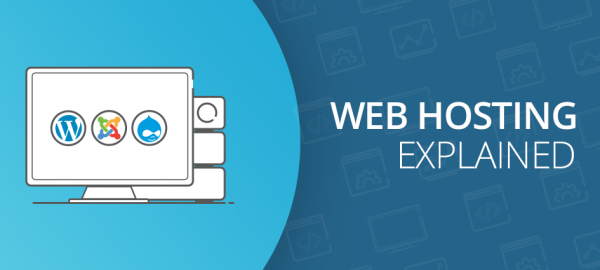Very few businesses today would be sustainable without some sort of web presence. Whether you are a one-person sole trader or a multi-national firm, many of your potential customers will be digitally literate and will be looking predominantly online for their needs – you need to be able to have a website that showcases your products/services.
Nowadays, building and maintaining a website doesn’t have to cost the earth or require extensive coding knowledge or skills. This is mainly thanks to the development of ‘drag and drop’ website builders and the surge in popularity of WordPress. Both of these have a multitude of pre-designed templates and themes and mean that you can potentially build a website from scratch in a matter of hours.
A website needs two main elements to be able to function: a domain name (e.g. names.co.uk) and web hosting. Hosting is essentially a virtual storage place for the files and applications that are needed for a website to work. These are both critically important elements when it comes to having a functioning website.
Many of the most popular website builder platforms offer hosting as part of their overall ‘package’ – but this is not always the case. And, when it comes to WordPress, users can opt for either managed hosting or self-hosting.
Managed hosting is an ‘all in one’ service provided by web-host companies and covers all technical aspects including security, updates, backups, and so forth.
Self-hosting means that you pay a web-host for storing your files only and you have total control of the actual website. You can do anything you want and customise it as you see fit. You will, however, need to deal with backups, updates, security updates and other operational issues.
So what exactly is bandwidth?
Bandwidth is essentially what determines the amount of web traffic that can be handled. It is the rate at which data can be transferred between a website, the users, and the Internet in a given period of time (usually one second). It is usually measured in megabits or gigabits per second (millions of bits or billions of bits).
Why is this important?
If there is insufficient bandwidth allocated to a website, it can crash or web pages can be slow to load. This can be infuriating for website visitors – indeed slow loading is one of the main reasons why potential customers hit the back button. Greater bandwidth means that more visitors will be able to access your site at its optimum speed and see what services and products you have to offer.
What determines bandwidth usage?
The amount of bandwidth that is used depends on a variety of factors, including the size/type of the media files on the website, the code and design of the site, the content, the number of visitors and the number of pages visited by each visitor, and whether or not they download or upload to the site.
For example, if all visitors view one page and then leave the site, this will use far less bandwidth than if they were to visit multiple pages, stay on a page for a significant amount of time, or download/upload large files.
How much bandwidth do you need?
As we mentioned above, the amount of bandwidth that a website needs depends on several key factors. Clearly, you don’t want to pay for more than you need.
There is a (fairly) simple formula that you can use to estimate your bandwidth needs. You will need to know the average size of a page on your website (in MBs), the average number of visitors per month, and the average page views per visitor. By multiplying these three numbers together you will get a rough estimate of the bandwidth you may need. It is prudent to also add in a buffer of say 10%.
So let’s say you expect 2000 visitors a month with each visiting an average of 3 pages. And the average size of a page on your site is approximately 3MB. The suggested bandwidth needed for the month would be:
(3MB * 2000 * 3)*1.1 = 19800MB (19.8GB)
In conclusion, bandwidth is an important factor in your web presence and setup but just how important depends on the nature of your website, how many visitors you expect, and what you expect them to do once they are there. A complex and dynamic e-commerce site with lots of traffic will need significantly more bandwidth than a rarely updated simple blog. A simple small and static blog can get by on 1GB bandwidth per month whilst a complex shopping site may need far in excess of 20GB.
Web hosting from names.co.uk
All names.co.uk web hosting packages give unlimited bandwidth, meaning you can ensure customers will always experience fast-loading pages and great experience. Check more details out on our website or call us on 0345 363 3632.
